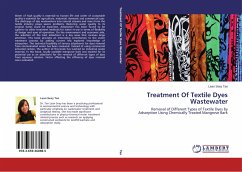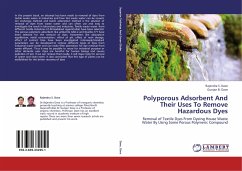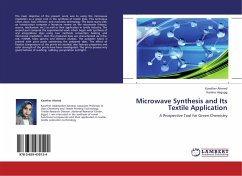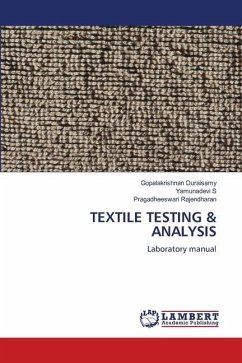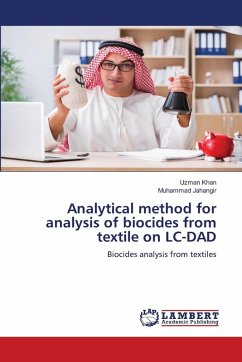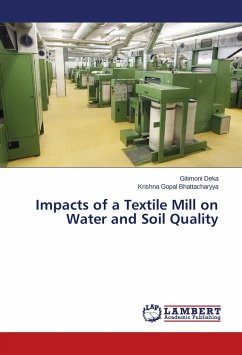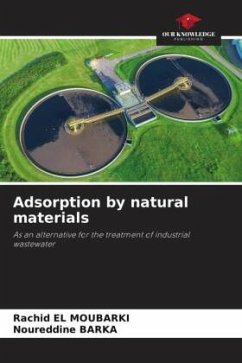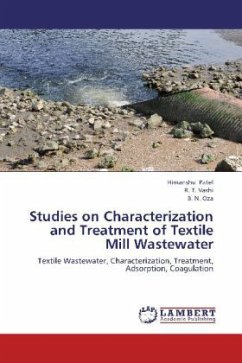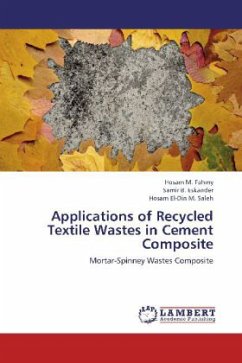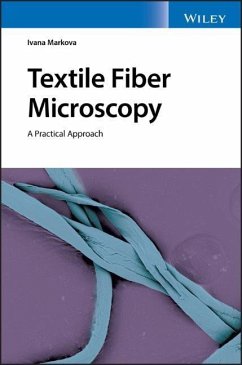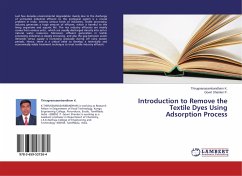
Introduction to Remove the Textile Dyes Using Adsorption Process
Versandkostenfrei!
Versandfertig in 6-10 Tagen
36,99 €
inkl. MwSt.

PAYBACK Punkte
18 °P sammeln!
Last few decades environmental degradation mainly due to the discharge of untreated industrial effluent to the ecological system is a crucial problem in India. Among various kinds of industries, Textile processing industry generates a huge amount of effluent, which is harmful to the living organisms and aquatic life. The rice industry effluents are mainly comes from various units , which are usually discharged directly into soil or natural water resources. Moreover, effluent generation in textile processing industries is steeply increasing, and also the gap between water demands versus supply ...
Last few decades environmental degradation mainly due to the discharge of untreated industrial effluent to the ecological system is a crucial problem in India. Among various kinds of industries, Textile processing industry generates a huge amount of effluent, which is harmful to the living organisms and aquatic life. The rice industry effluents are mainly comes from various units , which are usually discharged directly into soil or natural water resources. Moreover, effluent generation in textile processing industries is steeply increasing, and also the gap between water demands versus supply is increasing gradually during off rainy season periods. Hence, there is a critical need to develop a technically and economically viable treatment technique to treat textile industry effluent.



